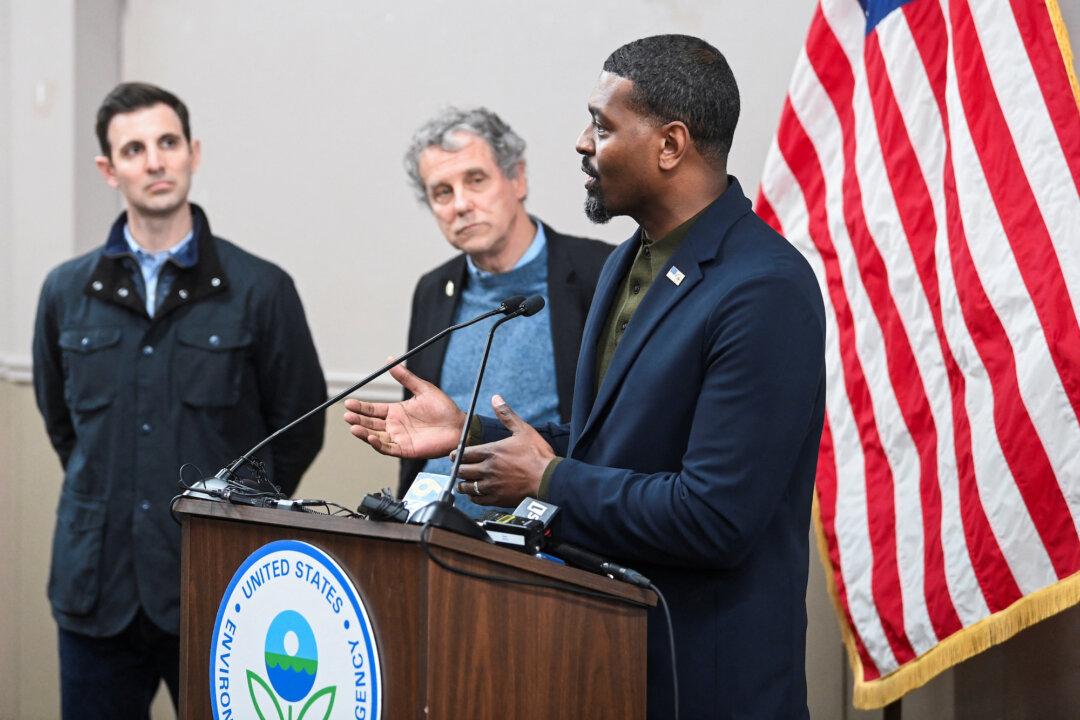Recognizing “there has been a deficit of trust” in the federal government among East Palestine residents in the aftermath of the Feb. 3 toxic train derailment, U.S. Environmental Protection Agency (EPA) Administrator Michael Regan returned to the eastern Ohio village on Feb. 28.
Regan attended a roundtable with students and teachers at East Palestine High School and talked to small business owners before holding a press conference to commemorate the opening of the EPA’s “Community Welcome Center.”





